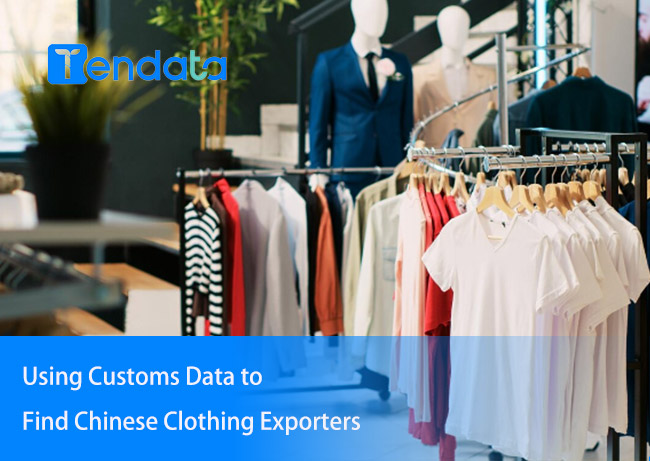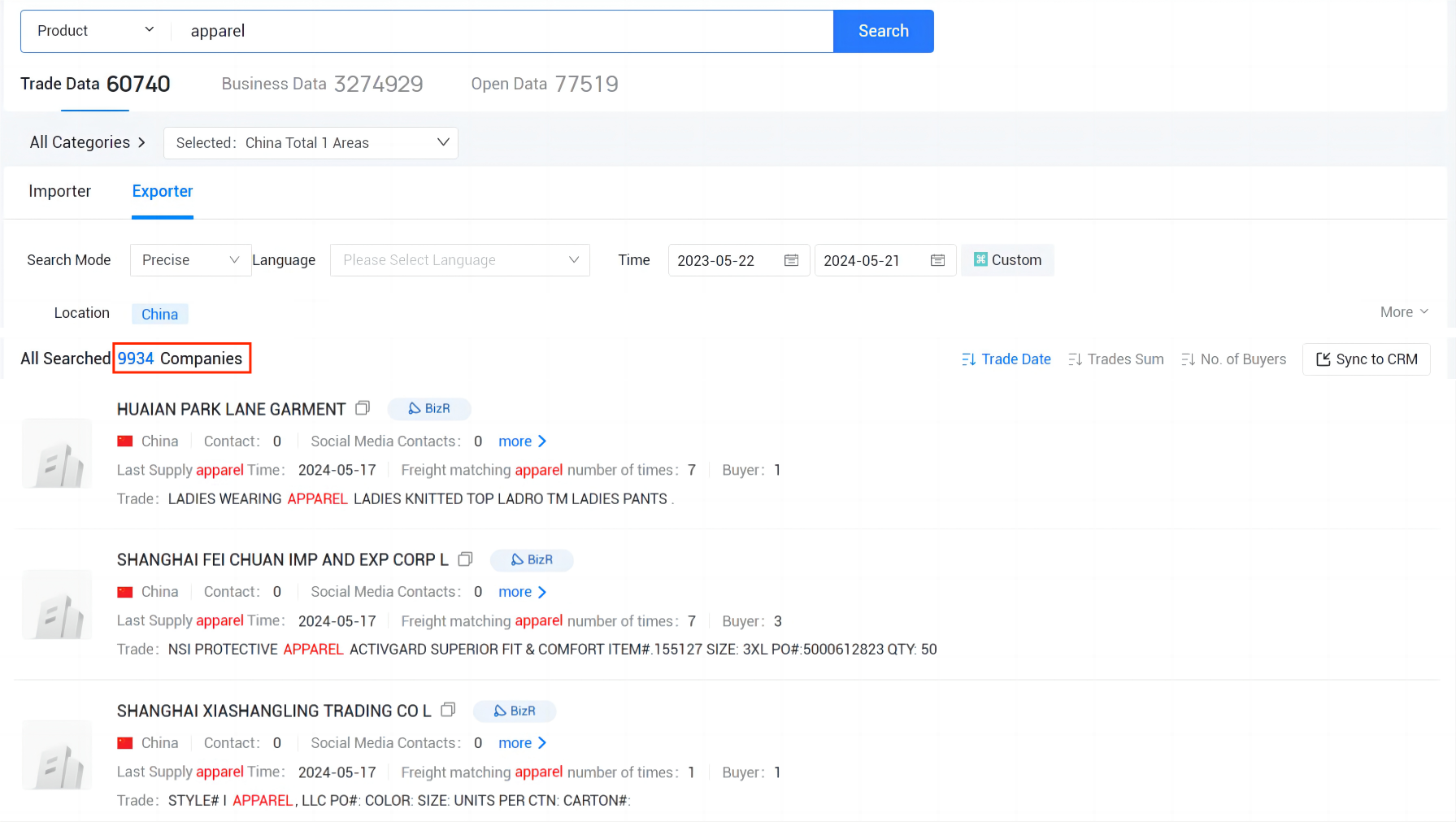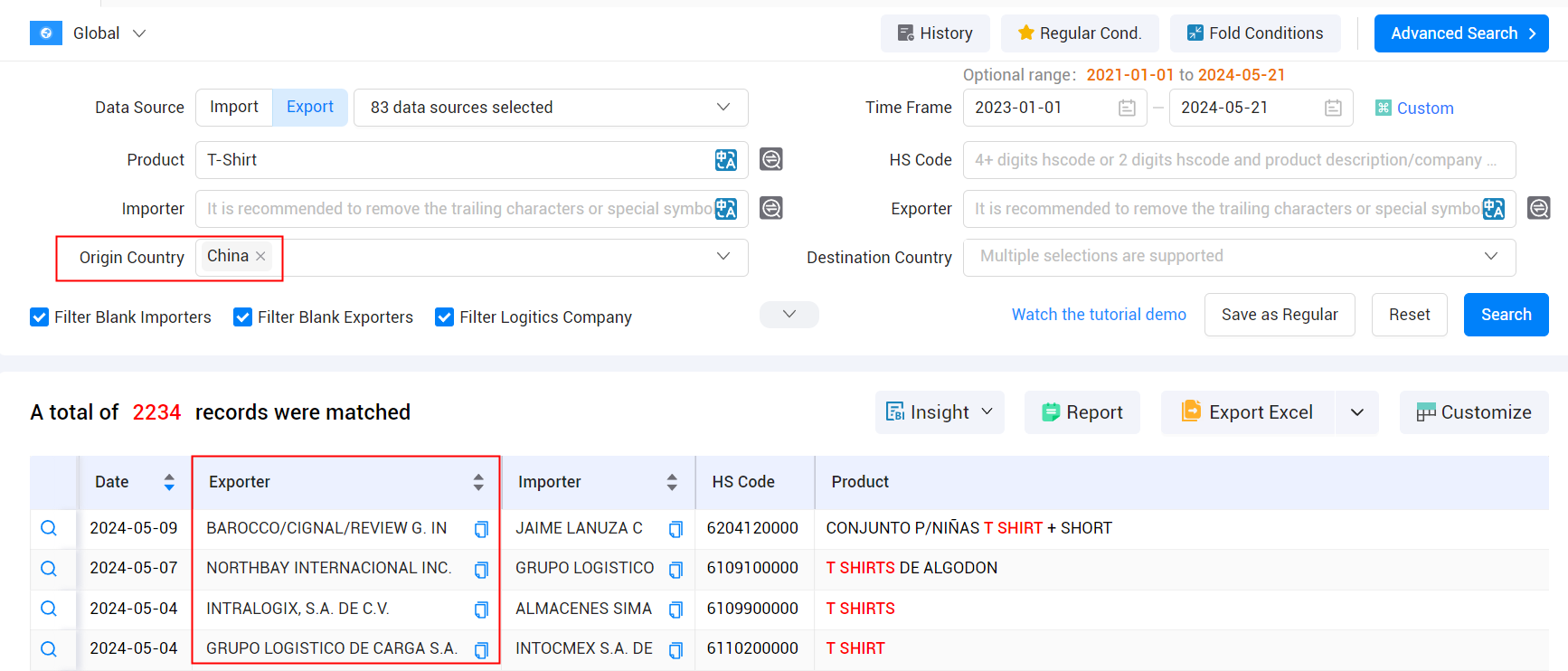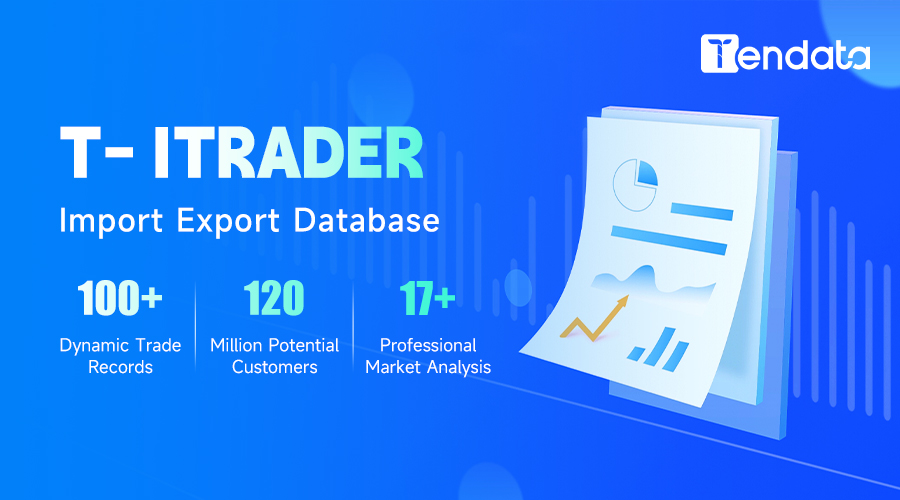 Export News
Export News
 21-05-2024
21-05-2024
China's textile and apparel exports of $159 billion in 2023 still has much room for growth.
China has rapidly emerged as a global fashion powerhouse, offering a wide variety of apparel, shoes, bags and accessories to suit different tastes and budgets. With its large textile industry and skilled labor force, importing fashion products from China provides an excellent opportunity to capitalize on the latest trends and tap into a large consumer base.
Chinese manufacturers have mastered the art of producing stylish and affordable clothing, making it an attractive option for global importers. Whether it's streetwear, elegant formal wear or stylish accessories, China's fashion industry has you covered.
In addition, China's textile industry has a strong supply chain from fabric production to apparel manufacturing. This vertical integration allows for efficient and cost-effective production processes, resulting in competitive prices for fashion products. By importing from China, you can enjoy higher profit margins while offering competitive prices to your customers.
It is important to note that China is not only a manufacturing center but also a fashion trendsetter. Due to China's expertise, cost advantage and fast turnaround time, many well-known international fashion brands have their products manufactured in China. By importing fashion products directly from China, you have access to the same quality and design expertise that drives the success of these global brands.

Using Customs Data to Find Chinese Clothing Exporters
Using customs data to find Chinese clothing exporters is a precise and effective method. Customs data contains detailed import and export records, which can help you identify and contact active clothing exporters. Here are the specific steps and methods:

1. Obtaining Customs Data
There are many customs data service providers that offer detailed customs data, such as Tendata. These platforms usually provide more convenient search and analysis tools.
· Steps to Use:
(1)Register and subscribe to the platform service.
(2)Use the platform's search function, entering relevant keywords such as "clothing" or "garment."
(3)Filter the data to obtain detailed information on Chinese clothing exporters.
2. Analyzing Customs Data
After obtaining the data, it is necessary to analyze it to find suitable Chinese clothing exporters.
· Data Filtering:
- Product Classification: Filter data based on customs codes (HS Code) to determine specific clothing categories, such as men's wear, women's wear, children's wear, etc.
- Export Regions: Filter based on export destinations to identify major export markets.
- Transaction Frequency: Identify Chinese clothing exporters with frequent transactions and large volumes, as these companies usually have stable supply capabilities and high credibility.
· Data Refinement:
- Transaction Details: Review the details of each transaction, including export dates, quantities, amounts, and other information to understand the exporter's business scale and capabilities.
- Company Names and Contact Information: Detailed data usually includes the names, addresses, and contact information of Chinese clothing exporters, which can be used directly for contacting them.

3. Contacting Potential Exporters
· Initial Contact:
- Email Contact: Use the contact information in the data to send an introductory email expressing your cooperation intentions.
- Email Content: Briefly introduce yourself and your company, explain your cooperation needs, and request further communication.
- Phone Communication: Call directly to have an initial conversation with the exporter's responsible person.
· In-depth Communication:
- Video Conference: Arrange a video conference to discuss cooperation details, understand the other party's production capacity, and quality control processes.
- Sample Order: Request samples to evaluate product quality.
- Factory Visit: If conditions permit, arrange an on-site visit to further understand the Chinese clothing exporter's production capacity and management level.
4. Confirming Cooperation
- Contract Signing: After confirming the cooperation intention, sign a formal supply contract to clarify the rights and obligations of both parties.
- Logistics and Payment: Determine the logistics plan and payment methods to ensure smooth transactions.
Summary
Using customs data to find Chinese clothing exporters is a systematic and effective method. By obtaining and analyzing detailed customs data, you can identify active and reliable exporters and establish strong cooperative relationships through a series of communication and evaluation steps. Whether through official channels to obtain data or using third-party platforms, this approach can help businesses find suitable partners in the international market.
Tendata has been committed to providing comprehensive solutions for overseas marketing for foreign trade enterprises (>>>Click to Inquire about Suitable Foreign Trade Solutions<<<). With Tendata's Foreign Trade Platform, which includes customs data from 93 countries, internet data from 141 countries, and business data from 198 countries, along with over 180 million global enterprise information, and rolling daily trade data of 10 billion, you can quickly and intelligently filter out contact information for 121 million executives and decision-makers, including email addresses, phone numbers, and social media profiles. Moreover, it synchronizes company yellow pages, product images, and website links, while offering 17 visualization reports to help foreign trade enterprises accurately target and analyze markets, enabling you to quickly find precise buyers and suppliers. (>>>Visit the Shanghai Tendata official website for more details<<<)

Category
Leave Message for Demo Request or Questions


 T-info
T-info T-discovery
T-discovery

 My
Tendata
My
Tendata Market Analysis
Market Analysis Customer
Development
Customer
Development Competitor
Monitoring
Competitor
Monitoring Customer Relationship
Customer Relationship





































































































































